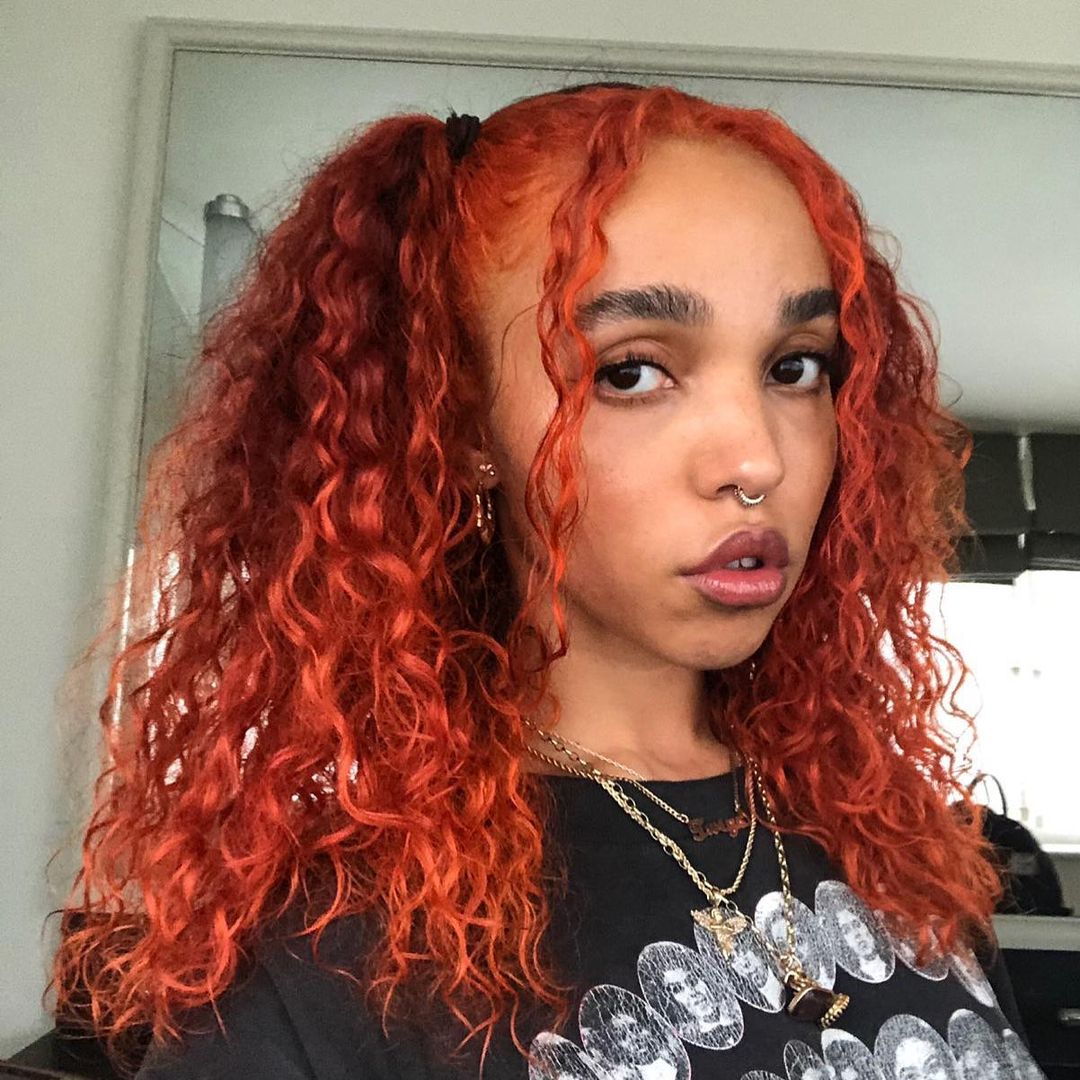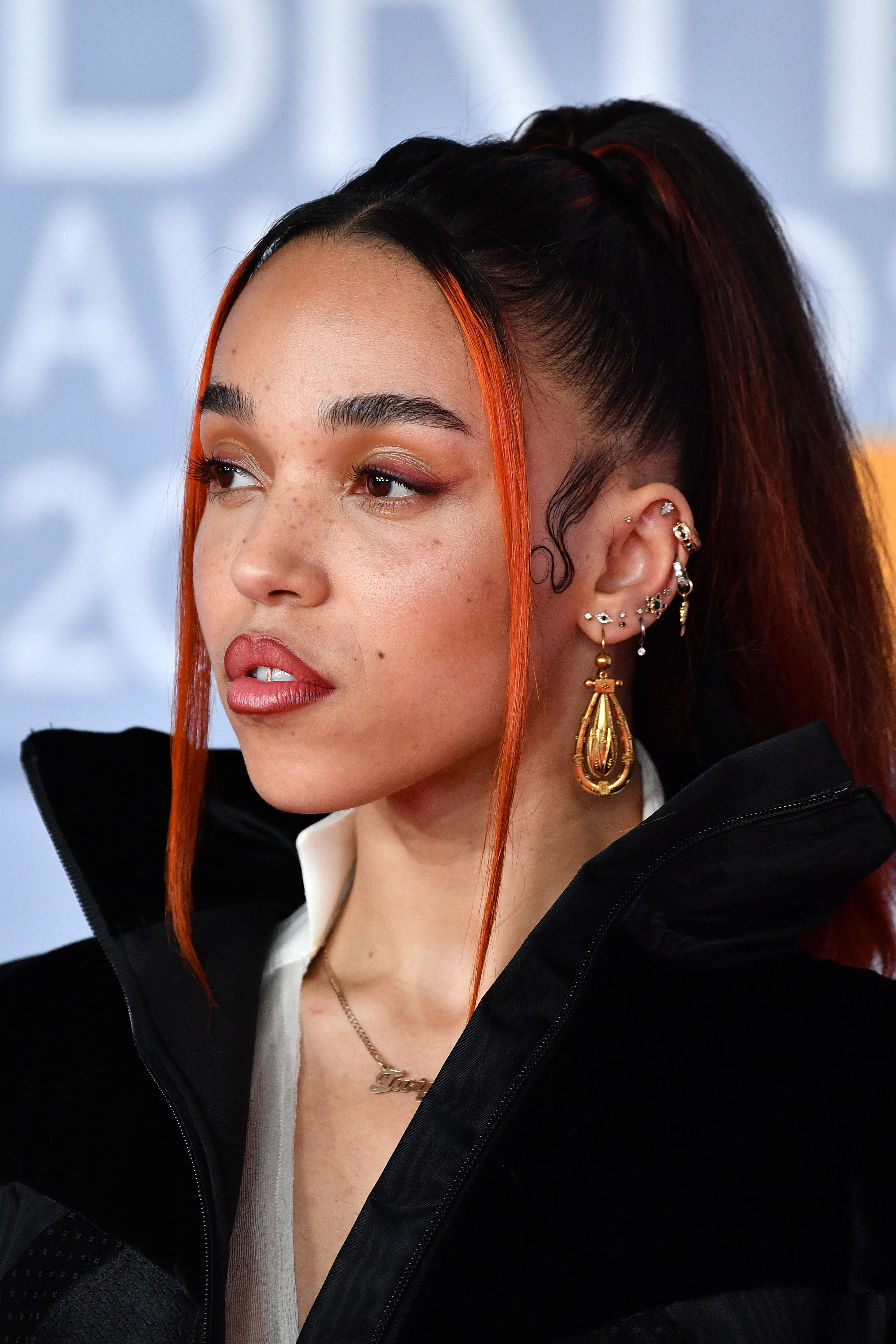

FKA Twigs – real name Tahliah Debrett Barnett – has filed a lawsuit against ex-boyfriend Shia LaBeouf, alleging that the actor subjected her to physical, emotional, and psychological harm throughout their relationship. The musician, who filed the lawsuit in the Los Angeles Supreme Court last Friday, hopes that her experience will encourage other survivors to seek help. Speaking to The New York Times about the case, Barnett said, “I’d like to be able to raise awareness on the tactics that abusers use to control you and take away your agency.”
Among the many harrowing allegations of “relentless abuse” in the related court documents is the assertion that 34-year-old LaBeouf enforced stringent rules around Barnett’s life – including how often she was permitted to touch him each day, how he barred her from speaking to or looking at male service workers, and the ways in which he effectively isolated the 32-year-old from her support network. When she disobeyed his wishes, Barnett says he would subject her to a barrage of criticism. She also claims he knowingly concealed a sexually-transmitted disease from her, which Barnett then contracted as a result.
Upon publication of the Times article, Barnett addressed the lawsuit on her Instagram and Twitter. “It may be surprising to you to learn that I was in an emotionally and physically abusive relationship,” she wrote. “It was hard for me to process too, during and after I never thought something like this would happen to me. Which is why I have decided it’s important for me to talk about it and try to help people understand that when you are under the coercive control of an abuser or in an intimate partner violence relationship leaving doesn’t feel like a safe or achievable option.”
Barnett details a distressing incident from February 2019 when she says LaBeouf took off his seatbelt and threatened to crash their car unless she told him she loved him. Barnett says she begged LaBeouf to let her out of the vehicle, to which he then pulled over and assaulted her after she tried to leave. Physical violence and threats had allegedly become commonplace by the later stages of their relationship, with the case documents stating that LaBeouf would sleep with a gun next to the couple’s bed, which Barnett said escalated her concerns about trying to leave the “difficult and dangerous” situation.
“The whole time I was with him, I could have bought myself a business-flight plane ticket back to my four-story townhouse in Hackney. He brought me so low, below myself, that the idea of leaving him and having to work myself back up just seemed impossible,” she said, adding that she felt unsupported after witnesses failed to step in during the February 2019 altercation.
“I just thought to myself, no one is ever going to believe me. I’m unconventional. And I’m a person of color who is a female.”
In addition to the commendable bravery she has shown in speaking out, Barnett’s lawsuit in itself is a monumental moment for survivors of domestic violence the world over. As the Times reported, it’s uncommon for cases of this nature to occur outside of divorce or custody proceedings, or orders of protection. It also puts a famous face to an urgent universal issue that doesn’t discriminate based on personal circumstances – even if you’ve access to substantial means and live in the public eye like Barnett.

COVID-19 has only further exacerbated the issue, with local experts reporting a surge in domestic violence cases since the onset of the pandemic. The Australian Institute of Criminology surveyed 15,000 women back in May and reported that 8.2 per cent of women who lived with a partner had experienced physical violence in the preceding three months. In 2020 alone, 49 women have been killed in incidents of family violence.
Barnett cited the pandemic as a factor in her decision to speak out, writing, “The statistics on domestically abusive and intimate partner violence relationships are shocking and during COVID I have been really anxious because I know many victims will have been literally trapped with their abusers with no relief or way to get out. My second worst nightmare is being forced to share with the world that I am a survivor of domestic violence. My first worst nightmare is not telling anyone and knowing that I could have helped even just one person by sharing my story.”
Another former partner of LaBeouf, stylist Karolyn Pho, has reinforced Barnett’s claims in the lawsuit with her own story of physical and emotional abuse. Singer Sia has also tweeted her support, saying that “pathological liar” LaBeouf emotionally hurt her and tricked her into an “adulterous relationship.”
I too have been hurt emotionally by Shia, a pathological liar, who conned me into an adulterous relationship claiming to be single. I believe he's very sick and have compassion for him AND his victims. Just know, if you love yourself- stay safe, stay away. https://t.co/2NNEj9w8b1
— sia (@Sia) December 13, 2020
The stories shared by these courageous women demonstrate the complex intricacies of domestic abuse, including the subtle psychological manipulations that are often written off as ‘bad behavior’ by those involved, rather than inflicting mental or emotional trauma on another. In actual fact, these incidents are far more common than they appear, but are no less damaging. In looking back at this writer’s own past relationships, there are a number of occurrences I dismissed at the time, despite the crippling effect that they had on my life both at the time and in subsequent years.
Over the year I was with one former boyfriend, he slowly wrapped his control around every area of my life, starting with what I deemed to be ‘small sacrifices’ in the grand scheme of our relationship. Like Barnett, I wasn’t permitted to speak to any male other than him or a few of the friends he trusted (because I never could be). I had to call him each day at a time that he determined, without fail or delay. I couldn’t speak to or spend time with my friends outside of his circle. I was forbidden from engaging in my favorite pastime – reading fashion magazines – because he deemed them to be, quite ironically, detrimental to my sense of self-worth. If I flouted any of these edicts and therefore denied his sovereignty over my decisions, I was punished by way of public and private torment.
Each time, convinced it was all my fault, I would relent and tearfully beg for his forgiveness until finally, afraid for my mental and physical safety, I broke up with him via phone as he was on his way to my house. He responded by subjecting me to months of harassment. Finally, after a series of volatile incidents, he threatened to seriously harm himself if I didn’t take him back. When the ongoing threats didn’t bend my fragile resolve and I started ignoring his persistent phone calls, he began showing up outside my bedroom window to intimidate and hurl vicious rhetoric at me. It continued for months, before culminating in a scary situation that has stayed with me ever since.
Intimate partner violence has often been discussed and understood through white heteronormative framework, but that’s entirely misguided. As Barnett pointed out, BIPOC women tend to face far more obstacles, as do LGBTQI communities. Recent research from Australia’s National Research Organization for Women’s Safety shows that trans women – particular trans women of a cultural and linguistically diverse background – face an even greater risk, but remain the least likely to report and, devastatingly, also the least likely to receive the proper help they need. It’s imperative to acknowledge that I was privileged in my status as a cisgendered, straight, white woman with a support network, which enabled me to navigate my own way out of the situation, where many cannot.
At the time, there wasn’t anyone publicly affirming what I had experienced. Despite the damaging nature, I never classified it as abuse so I never fully confided in my family or friends. As I moved through other romantic relationships later in life, my inability to identify my previous encounter led me to accept similar treatment. Barnett’s courage in sharing her story will allow women across the world, myself included, to untangle our ingrained perceptions about domestic violence and re-categorize these experiences for what they really are – intimate partner abuse, in its many insidious forms.
If you or someone you know has been impacted by domestic violence, call the 24-hour White Ribbon Australia helpline on 1800 RESPECT (1800 737 732)













